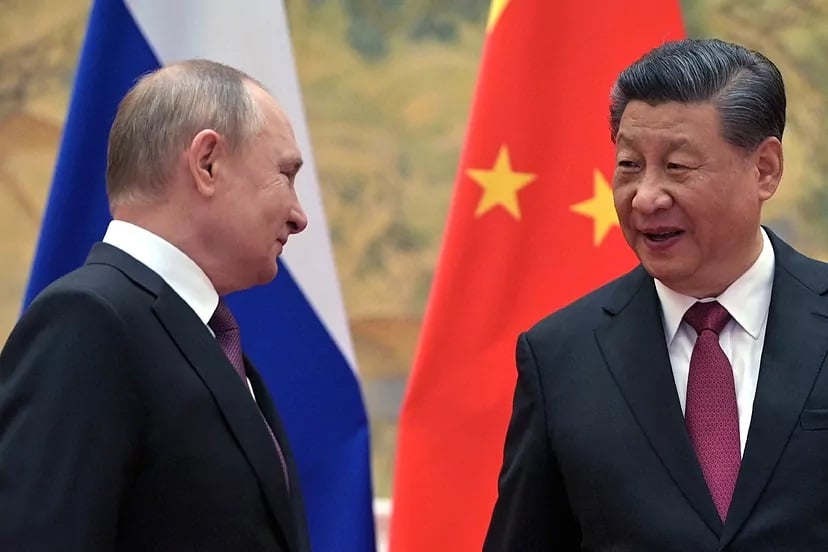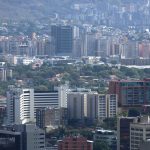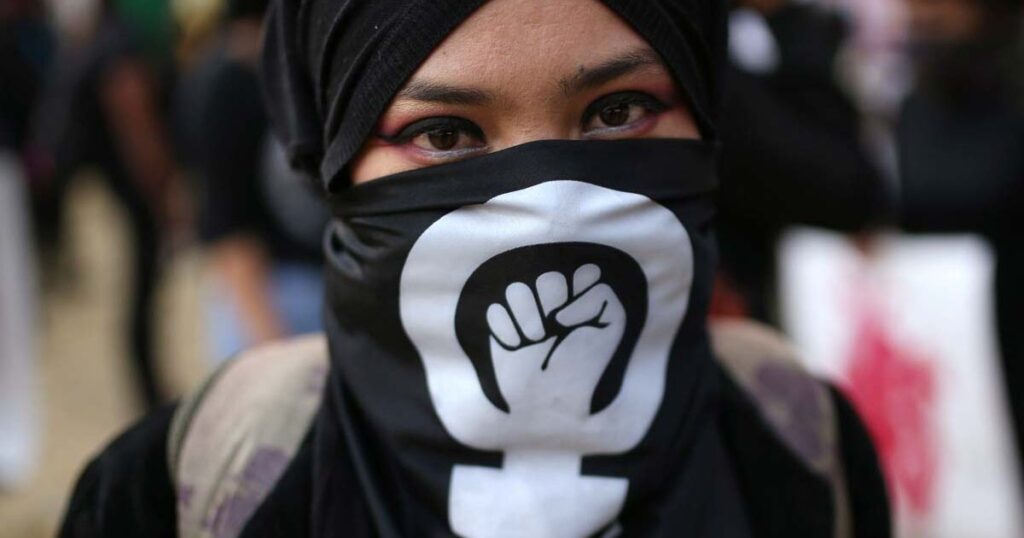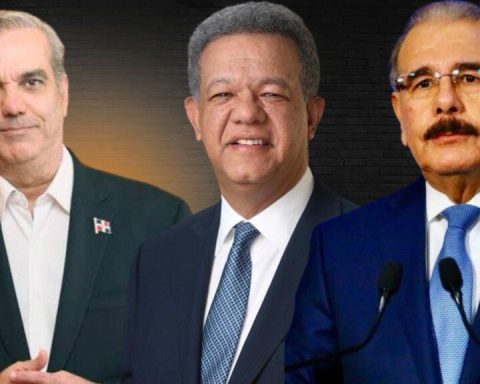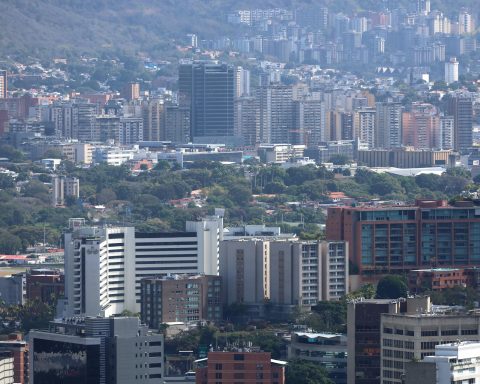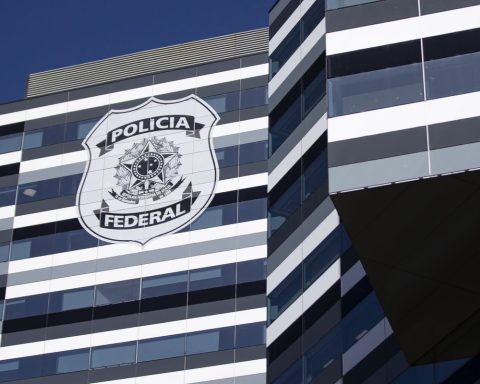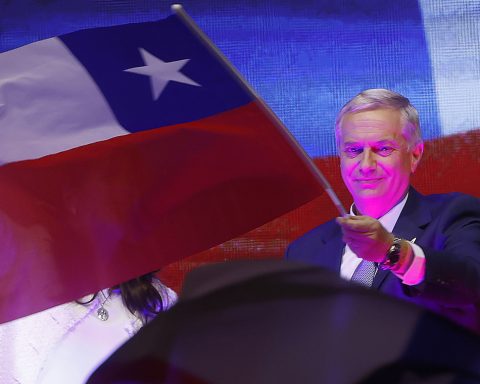After twelve days of Russian invasion in Ukraine, the course of the conflict does not seem to be going where the president of Russia, Vladimir Putin, expected. political scientist Evan Ellis, professor and researcher of Latin American studies at the Institute for Strategic Studies of the US Army War College, considers the “big winner” of the crisis and its repercussions in Europe and the United States, while highlighting the internal Ukrainian resistance.
“In the long term, China is triple benefited, on the one hand it is benefited by the distraction of the West, with Russia; it is also benefited by the economic and political isolation of Russia, because it makes Russia an increasingly dependent country on China, as a diminishing partner; and also because of the weakening that forces Russia to give in to the Chinese in the world environment, ”he told the television program This week.
Putin announced the “special military operation” against Ukraine on February 24. According to international media reports, the Russian regime deployed more than 190,000 soldiers to invade Ukrainian territory. The international community immediately condemned the decision of the Russian autocrat. On March 2, the General Assembly of the United Nations (UN) approved, with the support of 141 of the 193 member states, a resolution in which they deplore the aggression and demand from Putin the immediate and unconditional end and withdrawal of his troops. Only five countries including Russia rejected the resolution, while 35 nations abstained.
The Ortega-Murillo regime refrained from condemning the Russian action, although during the 88th anniversary of the assassination of General Augusto C. Sandino, justified the Russian aggression and received Russian Deputy Prime Minister Yuri Borisov in the country, who promised – without giving details – an increase in military and commercial cooperation.
The Russian invasion in Ukraine, according to the report of the Office of the High Commissioner for Human Rights of the UN, left until March 4 last the death of 1058 civilians and more than 700 wounded. However, it warns that “the real figures are considerably higher, especially in the territory controlled by the Government and especially in recent days, since the reception of information from some places where intense hostilities have developed has been delayed and many reports are still pending. corroboration was pending.
War of “guerrillas and resistance”
The expert considers that Russia, in two or three weeks or more, will eventually “control eastern Ukraine, and this will drastically change the situation because, now I believe that there is much encouragement for the resistance against the invaders, but when it comes to guerrilla warfare, the international dynamic can change.”
He appreciates that the fact that Ukraine has resisted and hindered – even more than many expected – the invasion of Russia, reveals an “apparently very bad planning of the Russian forces”.
“It appears that they had poor information on air system targets, so they did not achieve their initial goals of achieving air superiority; and it seems that they also have difficulty maneuvering, because they have not managed to obtain the indicated targets in those first days, ”he stressed.
On the other hand, he stressed that Ukraine has shown that they have learned lessons from their first great fight against the Russians in 2014, during the seizure of Crimea, since “they have adapted a lot, perhaps they have improved more than they expected in terms of war of guerrillas, and also in terms of their way of mobilizing the population”.
“There were some tactical surprises, for example, this utility value of unmanned vehicles against Russian armored columns,” he stressed.
He mentioned that strategically, in the first weeks of the Russian invasion, “the transformation of NATO, the decision of, for example, Germany, not only to increase its defense budget, almost doubling it, but also the decision to deliver anti-tank missiles.
Sanctions hit, but won’t bring Russia down
The expert explains that although the sanctions imposed by the United States, the European Union, the United Kingdom and Canada have hit the Putin regime, they will not cause the Russian economy to collapse.
“I don’t see that Russia is going to collapse, as an economy, but of course, it is already a disaster, these latest decisions to exclude certain banks from the Swift system have been a disaster for the ruble, it already has a great impact on the economy,” he said.
He added that “sanctions against oil are still to come and that is going to have an impact, although it is limited by the option of China, through this pipeline, to import some gas and oil that Russia is not selling as much to Europe, and also in the purchase of wheat and other Russian agricultural exports, which perhaps it is not exporting to other countries.”
The specialist believes that there will be a lot of damage due to the impact of these sanctions, but “the determination of this dictatorship to endure to follow its goals, as we have seen in other places such as Venezuela and Nicaragua, will triumph.”
Putin’s threats “are dangerous”
Recently, the Russian president threatened to attack Western countries that impose a no-fly zone over Ukraine, arguing that this is impossible even from Ukrainian territory and that “any movement in that direction will be considered as participation in the armed conflict by part of that State from whose territory threats to our country are created”.
Prior to invading Ukraine, the Putin regime, through Russian Deputy Foreign Minister Sergei Ryabkov, warned that they would not rule out a military deployment by Russia in Cuba and Venezuela if tensions with the United States government increase.
Ellis explains that while Putin’s threats are “dangerous,” he does not believe this extends to military conflict with other countries or with nuclear weapons.
“Putin wants to use terror against the populations of the cities, he also wants to use terror against the West, the fear of nuclear war,” he said.
He recalled that the Putin regime also threatened military deployment in 2008 in Nicaragua, again in 2013, and again in 2018, for what, he considers, “is Putin’s way of making escalation threats, but controlled to intimidate West”.
Ellis stresses that when a country has nuclear weapons, like Russia, “you have to take the threats seriously; and also other questions about Putin’s mental stability, but I think the risks are not as great as he wants the world to think.”
China benefits from the Russian invasion of Ukraine
The specialist assesses that China “in the long term” will be the big winner of this crisis generated by Russia’s invasion of Ukraine, since it “is benefiting from the distraction of the West.”
He points out that for now “China is trying to keep its head down to avoid being splattered by this aggression and brutality that Russia is already incurring.”
“I think that China miscalculated the brutality of Russia and how this was going to make China look bad for having supported Russia in such a way. And that is why China is trying to disguise saying – we want peace, negotiation”, she pointed out.
He also considered that China is drawing lessons to understand the consequences of a possible operation against Taiwan, which he values may be tempted because the West is “distracted” by the situation between Russia and Ukraine.
“China is looking to learn from what Russia has done wrong, to ensure when, if it acts against Taiwan; and Xi Jinping has indicated that he wants to do it before his third term in office in 2027, they do it, maybe not now, but when we do it, what things do we do to avoid the mistakes that the Russians are already making”, he referred.
The also expert in relations between China and Latin America warns that, although the conflict between Russia and Ukraine has some advantages for the Chinese regime, for other Latin American countries it represents serious economic consequences.
“I see the impacts mainly through economic means, and not so much as benefits to the friends of the Russians. In certain sectors, for example, the agricultural sector, especially with countries like Brazil and Argentina, they may have complications from fertilizers, which they have always imported. There is also another impact on oil and agri-food prices. So, I believe that the countries of Central America, where the price basket for food can rise, because they are also importers of oil, just like many of the Caribbean countries, will be judged, ”he explained.
The link with the dictatorships of Nicaragua, Cuba and Venezuela
The political scientist values that, for now, Russia’s relationship with the dictatorships of Cuba, Nicaragua and Venezuela has more political elements than the ability to represent a military threat, recalling that in recent years there have been “many promises and threats” that they came to nothing.
“Russia is not really in the decision to do many things for these countries, despite, for example, (of) this supposedly formal agreement that (…) it signed in Venezuela, and obviously, this threat is repeated many times, and “dog that barks does not bite””, he pointed.
He says that Russia is struggling with a worsening shortage of resources and that “it is no longer left with a defense infrastructure to project a large number of ships and other things, and also to offer large amounts of economic or military aid.” However, he did not rule out that the Russian regime “does something to show that it can, if Russia de-escalates the situation, it will still do something in Latin America to say – look, although we are de-escalating from here, but I, Vladimir Putin, am still strong here”.
“I see something small and brief, more than something that can really materially help the Ortega dictatorship or (…) the region,” he stressed.
